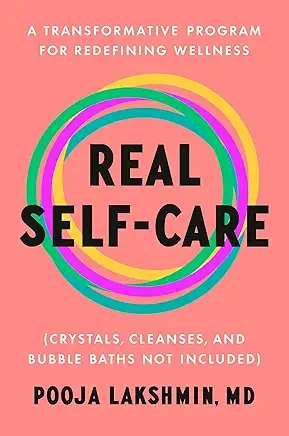Perinatal Mental Health Matters.
The pregnancy period and having a new baby can be a very happy time for many but not all. “1 in 5 women will experience a serious perinatal mood or anxiety disorder.” Making it “the #1 complication during pregnancy and childbirth.” Meanwhile “90% of new moms (80% of new dads) will have intrusive, unwanted & distressing thoughts” that can affect the entire family. The sooner you (or a loved one) get help the sooner you can start feeling like yourself again.
Inside Out Counseling LLC/ Carrie Torres, MS, LPC specializes in perinatal (pregnant and postpartum)-related disorders.
Scroll down for resources and book recommendations.
PMAD Treatment.
There are effective treatments (medication, mental health therapy) for perinatal mood and anxiety disorders. Inside Out Counseling specializes in cognitive behavioral therapy (CBT) and exposure and response (ritual) prevention (ERP) therapy for perinatal OCD, depression, and anxiety disorders. Additional resources are below to help you navigate a PPMD including perinatal hotlines.
What are perinatal mood and anxiety disorders (PMAD)?
PMAD occur when one has a gradual or sudden change in their mood during pregnancy or the following 12+ months after delivery. Perinatal mood and anxiety disorders include obsessive-compulsive disorder, panic disorder, generalized anxiety disorder, PTSD, depression, bipolar, or psychosis. Fathers, parents adopting children, and those experiencing pregnancy/infant loss can also suffer from PMAD. Negative changes in mood can be very distressing and confusing for those experiencing them and they are treatable.
Common symptoms to look for (you do not have to experience all of these for PMAD) include: feeling sad, depressed, or hopeless, lack of interest or connection with baby, fear that you might harm yourself or your baby or something terrible will happen to them, feeling angry, anxious, or irritable, extreme worries or fears, dizziness, rapid heartbeat, feeling out of control or like you’re going crazy, an urge to repeat certain behaviors to reduce anxiety, flashbacks during pregnancy, feeling more energetic than normal, problems eating or sleeping.
Resources
Postpartum Support International (PSI)
“PSI is dedicated to helping families suffering from postpartum depression, anxiety, and distress” and has an abundance of resources and free support groups. PSI Warmline (1-800-944-4773) is a toll-free number and anyone can call to get basic information, support, and resources. Voicemails will be returned as soon as possible.
Postpartum Support International-Wisconsin (PSI-WI)
“PSI-WI is the Wisconsin state chapter of Postpartum Support International, the world’s leading non-profit organization dedicated to helping those suffering from perinatal mood disorders, the most common complication of childbirth. PSI offers caring, informed support, and resources through the PSI Support Coordinators.”
Mom's Mental Health Initiative
“Moms Mental Health Initiative is a Wisconsin nonprofit organization dedicated to helping moms navigate perinatal mood and anxiety disorders by sharing information, connecting them to resources, and providing peer-driven support.”
National Maternal Mental Health Hotline
“Free and confidential hotline for pregnant and new moms available 24/7 in English and Spanish. The National Maternal Mental Health Hotline provides support before, during, and after pregnancy. The Hotline offers callers: phone/text access to professional counselors, real-time support, responses within a few minutes, resources, referrals to local and telehealth providers/support groups, and culturally sensitive support.”
Mom's Mental Health Matters
“Created by the National Institute of Child Health and Human Development. This website offers education and risk factors for mothers and families including an action plan for depression and anxiety during pregnancy and after birth.”
Beyond Postpartum
“Early parenthood is supposed to be one of the most fulfilling and wonderful times of our lives – and yet, 1 in 4 new parents struggle with mood and anxiety disorders (and many more just plain ol' struggle). In Beyond Postpartum, the official podcast of the Pacific Post Partum Support Society, we share our stories of resilience and recovery from perinatal mood and anxiety disorders.”
Mother to Baby
“Medications and more during pregnancy and breastfeeding. Ask the experts or view one of the fact sheets.”
The Periscope Project
“The Periscope Project is a free resource for any health care providers caring for pregnant and postpartum women in Wisconsin who are struggling with mental health or substance use disorders.” A perinatal psychiatrist will return your call within 30 minutes or less and after a case consultation, “offers evidence-based education and recommendations to the provider based on the information provided during the conversation.”
The single most important parenting strategy TED Talk
Dr. Becky Kennedy is revolutionizing the way we raise our kids by prioritizing connection over consequences. In her TED Talk, Dr. Kennedy shares a simple and effective strategy for parenting while debunking the perfect parenting myth.
-

Good Moms Have Scary Thoughts
Karen Kleiman
-

Dropping the Baby and Other Scary Thoughts
Karen Kleiman and Amy Wenzel
-

Fair Play
Eve Rodsky
-

And Baby Makes Three
John M. Gottman, PH.D. & Julie Schwartz Gottman, PH.D.
-

Real Self-Care
Pooja Lakshmin, MD

